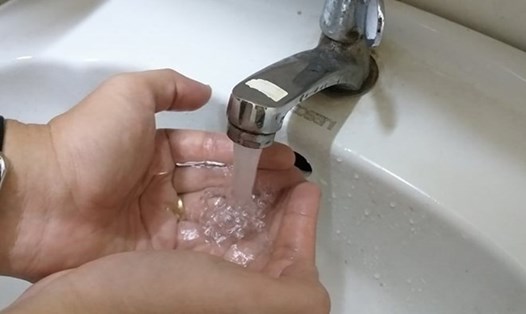Potential risks of rinsing your nose with tap water
Dr. Joydeep Ghosh, Consultant - Internal Medicine, Fortis Hospital, Anandapur (India) pointed out a major danger in using untreated tap water to wash the nose or other mucous membranes. Although tap water may be safe to swallow due to the protective effect of stomach acid, when it comes into contact with sensitive areas like the nose, organisms such as bacteria and amoebas can survive and cause serious infections.
Infections caused by naegleria fowleri (brain-eating amoeba) or acanthamoeba (brain and eye infection amoeba) are examples of serious illnesses that can result from the use of untreated or unsterilized water. These illnesses can lead to serious damage to the nervous system and even death if not detected and treated promptly. Therefore, to minimize the risk, it is important to use distilled or treated water when performing activities such as nasal irrigation or nasal sprays.
The US Centers for Disease Control and Prevention (CDC) has also warned of the serious risks of using unsterilized tap water for nasal irrigation. Both naegleria fowleri and acanthamoeba infections can lead to extremely dangerous infections, even death in rare cases.
Naegleria fowleri: This is an amoeba that lives in warm water (such as swimming pools, hot springs, and even contaminated tap water). Once it enters the body through the nose, it can travel to the brain and cause amoebic encephalitis, an extremely serious infection. Although rare, in cases where it does occur, the death rate is very high and the disease progresses rapidly, within a few days of the onset of symptoms.
Acanthamoeba: This is another amoeba that can cause meningitis and encephalitis, as well as serious eye infections (common in contact lens wearers). If the infection spreads to the central nervous system, it can cause irreversible damage, death, or permanent disability.
Conclude
Dr. Joydeep Ghosh emphasized: "When rinsing the nose, only use treated or distilled water, avoid using direct tap water because it may contain harmful organisms. This is a simple but effective measure to protect health, especially for people with weak immune systems or children."










